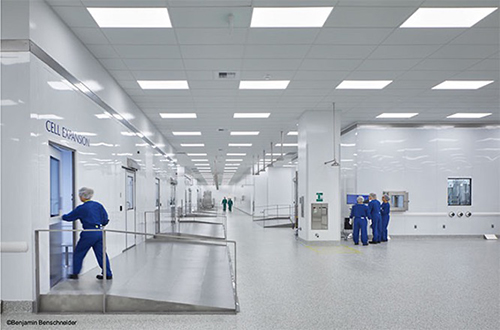Continuous Biomanufacturing: An emerging technology for new biopharmaceutical modalities

These challenges derive from the inherent complexity of new modalities. To begin with, there are obstacles to the development of stable expression systems and upstream processes that give high productivity. Their structural complexity can lead to problems ensuring their correct assembly and stability. Further, the increased presence of product-related impurities, such as half antibodies and fragments, complicates purification processes and contribute further to yield losses.
The added complexity of manufacturing these emerging biological modalities can result in higher production costs, impacting the overall pricing and affordability of these therapies. The intricate production processes can hinder scalability, limiting the ability to meet market demand. Biopharmaceutical companies may find that market entry is delayed as the novel formats and purification challenges complicate regulatory approval processes.
Addressing these challenges through innovative bioprocessing solutions and strategies is crucial for successful commercialization. Continuous manufacturing platforms are an emerging technology that significantly address the challenges associated with bispecific and multi-specific antibodies, Fc-fusions, and antibody fragments.
Continuous production eliminates the need for pauses between production stages, ensuring a seamless flow from raw materials to finished products. This reduces downtime and increases overall bioprocess productivity. Perfusion cell cultures used in these platforms allow very high cell densities to be achieved leading to higher yields compared to traditional batch methods, which is crucial for complex biologics. By streamlining production processes and reducing the need for intermediate testing and transfers, continuous manufacturing is lowering overall production costs.
Operating in a continuous mode provides greater consistency in product quality by minimizing exposure to hold times and environmental fluctuations. This is particularly beneficial for maintaining the stability of complex biologics. These platforms are more scalable than traditional fed-batch methods as the process is run for longer on the same equipment without having to scale-up to a new production site. This allows biopharmaceutical companies to meet market demand more efficiently without compromising quality.
Overall, continuous manufacturing platforms offer a transformative approach to biopharmaceutical production, addressing key challenges and paving the way for more efficient and cost-effective commercialization of advanced biologics.
Although many advances in this field are being made by large pharmaceutical companies, a small number of emerging CDMOs such as Just – Evotec Biologics (a wholly-owned subsidiary of Evotec with cGMP facilities in USA and Europe) are ensuring this emerging manufacturing technology is available to all companies developing new and more complex biological modalities.
More information on Just-Evotec Biologics
Nick Hutchinson, Associate Vice President Business Development at Just – Evotec Biologics
Contact: nick.hutchinson@evotec.com






















